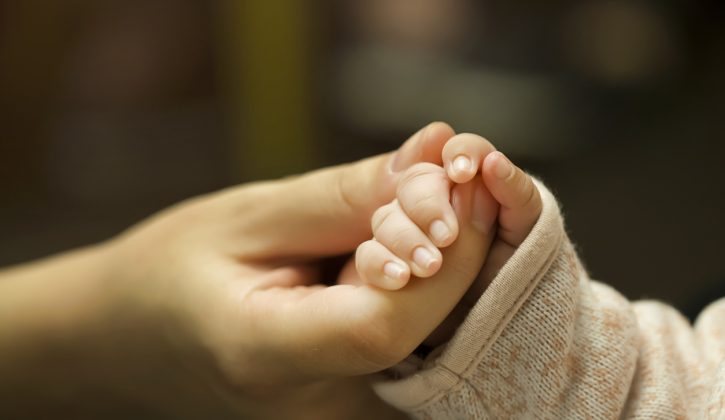I have a complicated relationship with Awareness Months.
As a marketer and former fundraiser, I’m trained in measurables, not intangibles, and I’ve learned to question how much value there is in being “aware” of something.
This has been on my mind because November is Adoption Awareness Month and as an adoptive parent, I’m questioning how effective it is in promoting change.
People know adoption exists, but are they aware of the problems?
Are people aware of the consequences, and opportunities that exist within Canada’s child welfare system, of which adoption is a huge part? Do they know that in Canada there are 30,000 children languishing in foster or government care without a place to call home? Do they know that our national child welfare system is too fragmented, outdated and inadequate to solve this problem?
According to Canadaadopts.com, an online adoption profile service:
“Nobody knows exactly how many birth mothers in Canada place their newborns for adoption each year. It’s been said that we keep better track of our used cars than we do of our children.”
Nobody knows? How is it possible that we aren’t tracking human beings, not to mention the scope of an issue concerning our youngest and most vulnerable citizens? In a developed, first world country that claims to be so socially progressive (legalized recreational marijuana y’all!) this is shocking and unacceptable.
In addition to having no national tracking system for adoptable children, each province has its own model for child welfare, and ownership of the problem is difficult to pinpoint. Organizations like the Children’s Aid Society in Ontario are over-worked and under-funded. Their priority, rightfully so, is removing children from dangerous situations as quickly as possible. But when a child becomes a crown ward and therefore eligible for adoption, he or she can spend years waiting for a forever family. On average, a child enters foster care around eight years old and spends the next decade shuffling between multiple families before “aging out” with little to no support.
If Canada’s child welfare system were a private corporation, heads would roll. The people in charge would be fired and the problems would be solved. And yet here we are, with a problem as old as our country and no one’s doing anything about it. And citizens aren’t demanding change not because they don’t want to, not because they don’t care, but because they don’t know about or fully understand the issues.
For Adoption Awareness Month to be successful it needs to do two things: build awareness of the psychological impact of growing up in government care and educate the public on why this matters.
Adoption is shrouded in myth and misconception.
One of the most damaging myths is that adoptable children are “bad” kids because of the behaviours that often manifest from a life spent living in poverty, surviving abuse, or dealing with a parent’s poor mental health. Years spent in “the system” without feeling safe and secure, without understanding why you have to be separated from your siblings, or why you can’t live with your birth parents, are understandably going to impact the way a child sees the world and how she behaves.
When my oldest daughter moved from one foster home to another, at age three, everything she owned in the world was stuffed into a garbage bag. It took me two years before I could even look at that photo without crying. Three years old, no one to call “mommy”, and everything that was important to her thrown in a bag like trash.
Kids in foster care spend every day wondering if they’ll have to move homes without warning, or change schools without notice.
They live with uncertainty, loss and fear every minute of every day. This is not to say that foster care is bad or that all foster homes are bad, but they cannot replace a permanent, loving family.
And yet statistics show that there is no shortage of families, couples and single people who want to adopt. Where the system breaks down is matching waiting children with waiting families and educating waiting families on older child adoption. If someone is hoping to welcome an older child into their home but there are no older children in that particular child welfare catchment (though this is sadly unlikely), the system isn’t set up to make that connection. If there’s a sibling group in British Columbia and a family willing to adopt them in Saskatchewan, there’s no way to match the two, save for dedicated and enterprising (also overworked and under-resourced) child welfare staff.
So everyone waits. Children languish and families get frustrated. Many give up.
Adoption Awareness Month would be so much more effective if it could demonstrate why this is a problem that affects us all because, in addition to the human cost, the financial impact on our social programs is staggering. Not everyone can adopt, but everyone can help. And the willingness to help starts with education around why it’s important.
Children who’ve been in government care are 30% more likely to abuse or neglect their own children, three times more likely to abuse alcohol and develop addiction and 25% more likely to experience teen pregnancy. 50% of kids in care will drop out of high school. In addition to the financial costs, this cycle of consequences is a shameful and unfair burden to place on children who are in these situations through no fault of their own.
Curing diseases, raising funds and solving complex social problems is a long game and there’s absolutely no harm in engaging the public in this effort, but awareness campaigns – especially those dedicated to complex issues like adoption – must be accompanied by education and information if they’re going to reach their full potential and affect change.
Admittedly, I had no idea about any of this until I experienced it first hand, and I think most parents in my position would say the same. But rather than making us unfairly biased, I think it puts the onus on us to advocate for change. Because if we don’t, who will?
Tagged under: adoption,adoption in canada,adoption awareness month,child welfare in canada,canada's child welfare system
Category: seasonal






